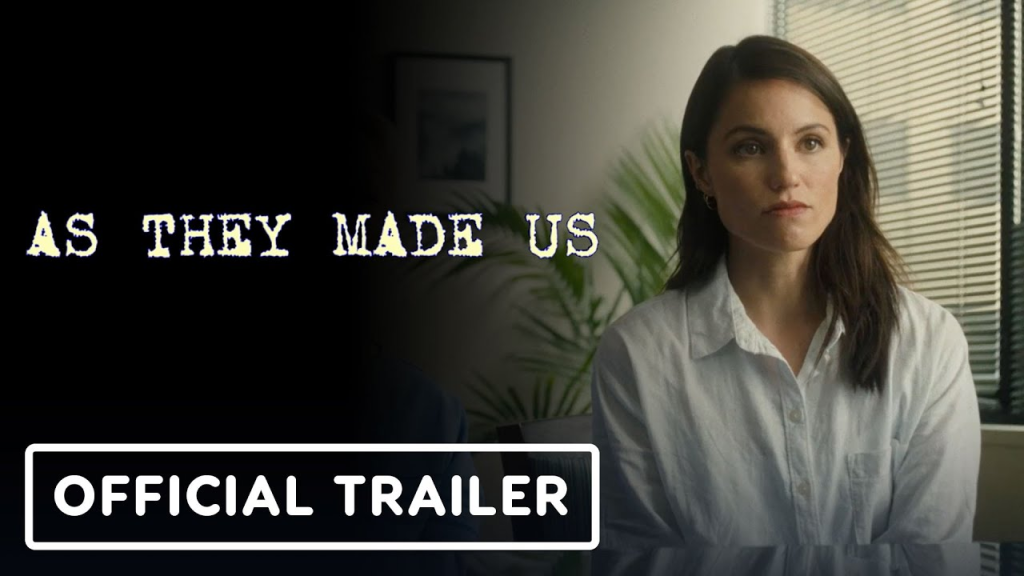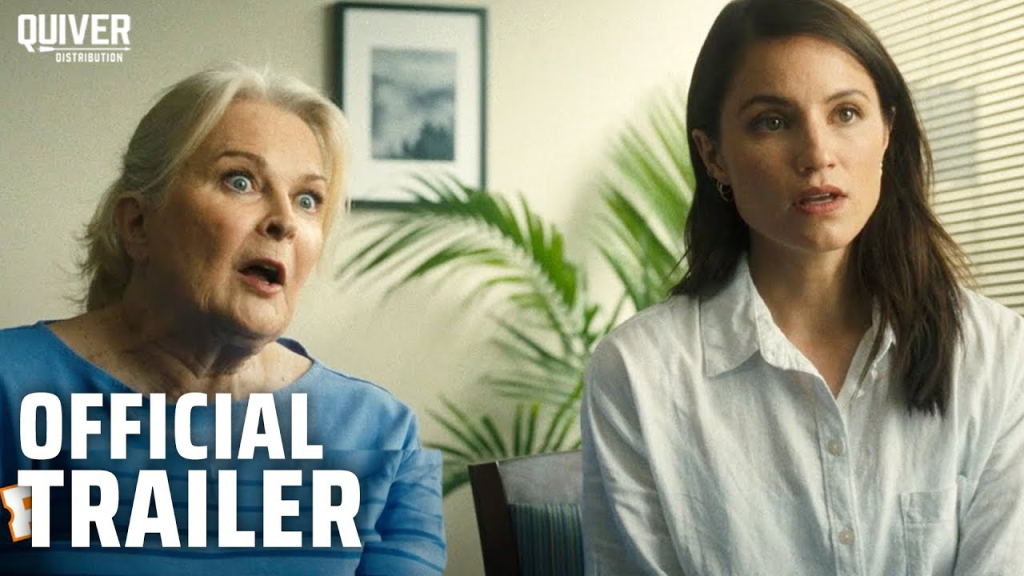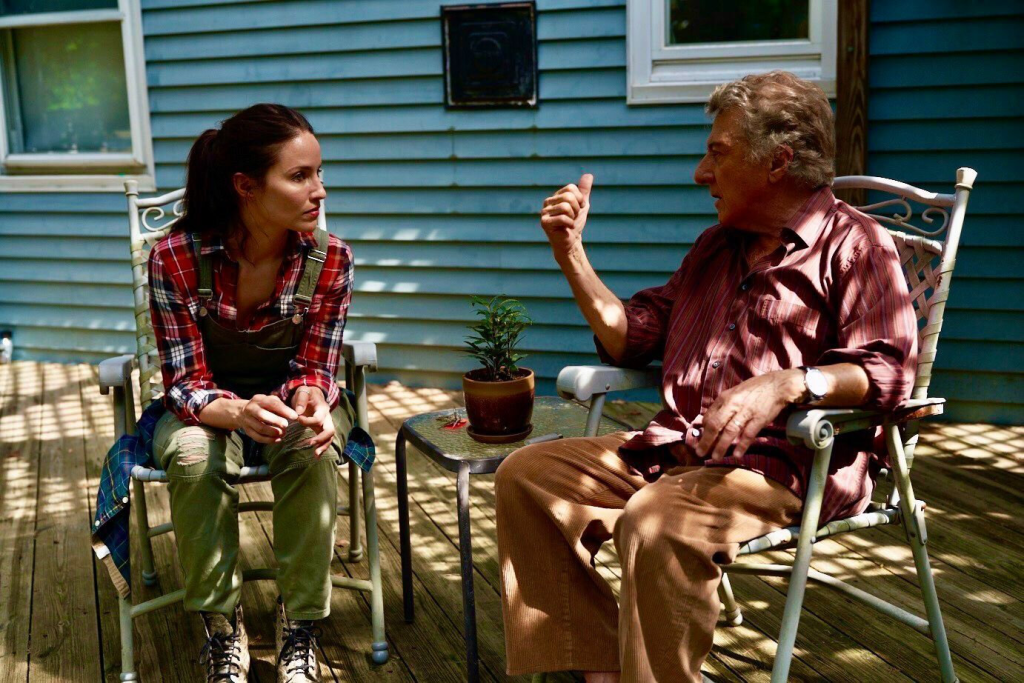As They Made Us

Introducing As They Made Us : A Poignant Exploration of Family, Trauma, and Healing
In 2022, Mayim Bialik, celebrated for her roles in Blossom and The Big Bang Theory, as well as her stint as a Jeopardy! host, made her feature directorial debut with As They Made Us, a deeply personal drama that delves into the complexities of familial dysfunction, grief, and resilience. Starring Dianna Agron, Simon Helberg, Candice Bergen, and Dustin Hoffman, the film offers a raw, heartfelt portrayal of a Jewish family grappling with past trauma and impending loss. Released on April 8, 2022, by Quiver Distribution in theaters and on video-on-demand (VOD), the film earned praise for its authentic performances and emotional depth, despite its somber tone. As As They Made Us returns for a 2025 re-release, featuring enhanced visuals and bonus content, this article provides a comprehensive introduction to the film, exploring its plot, cast, production, themes, and lasting impact as a testament to Bialik’s storytelling and the universal struggle to heal from familial wounds.

Plot Overview: A Family’s Tumultuous Journey
As They Made Us centers on Abigail (Dianna Agron), a divorced mother of two young boys, navigating the emotional minefield of her dysfunctional Jewish family while seeking a second chance at love. The story unfolds in the present, with flashbacks revealing the childhood traumas that shaped Abigail and her estranged brother, Nathan (Simon Helberg). Their father, Eugene (Dustin Hoffman), a mercurial artist with a degenerative condition, is nearing the end of his life, with a prognosis of six months, prompting Abigail to act as the family’s self-appointed fixer. Their mother, Barbara (Candice Bergen), a domineering narcissist with borderline personality disorder, refuses to accept Eugene’s illness, dismissing caregivers and burdening Abigail with constant demands.
The narrative follows Abigail’s efforts to care for her parents while reconnecting with Nathan, who has been estranged for over 20 years due to their parents’ verbal and physical abuse. Flashbacks depict a volatile household marked by Eugene’s violent outbursts and Barbara’s emotional cruelty, which Abigail mitigated even as a child. In the present, Abigail visits Nathan, now a professor, urging him to reconcile with Eugene before it’s too late. Meanwhile, she begins a tentative romance with Jay (Justin Chu Cary), a kind-hearted landscaper, though her familial obligations strain her ability to embrace new love. As Eugene’s health deteriorates, he is placed in hospice, and his eventual death forces the family to confront their grief and fractured bonds. At the funeral, Jewish rituals—such as shoveling dirt onto the coffin with the back of the shovel—underscore their cultural heritage, though Nathan’s absence highlights his unresolved pain. Six months later, Abigail and Nathan reconnect at his daughter’s graduation party, suggesting a fragile hope for healing, though the film avoids an overly tidy resolution.
The story balances humor and heartache, with authentic dialogue capturing the messy dynamics of a family shaped by mental illness and trauma. Its intimate focus on everyday moments—awkward birthday parties, tense phone calls—grounds the drama, making it relatable to anyone who has navigated complex family ties or loss.

Cast and Characters: A Powerhouse Ensemble
The strength of As They Made Us lies in its exceptional cast, led by Dianna Agron’s nuanced portrayal of Abigail. Agron, known for Glee and Shiva Baby, carries the film with a performance that balances sympathy and exasperation, embodying a woman torn between duty and self-preservation. Critics praised her “elegantly low-key” and “emotionally complex” performance, noting her ability to convey Abigail’s lack of agency without resorting to melodrama.
Candice Bergen delivers a fearless performance as Barbara, a flawed, abrasive matriarch whose narcissistic cruelty masks deep insecurity. Bergen, who previously played Dianna Agron’s mother in The Romantics (2010), brings depth to a character who could have been a stereotype, making her both loathsome and human. Dustin Hoffman’s Eugene is equally compelling, portraying a once-terrifying artist now frail and vulnerable, with flashbacks revealing his abusive past. Hoffman’s ability to evoke fragility and distress, especially in his deathbed scenes, earned accolades as a “master class” in acting.
Simon Helberg, Bialik’s Big Bang Theory co-star, shines as Nathan, the estranged brother whose laconic demeanor hides deep wounds. His “sullen reckoning” adds nuance to the film’s exploration of trauma, with critics noting his performance as deeply illuminating. Supporting roles include Justin Chu Cary as Jay, whose grounded warmth offers Abigail a glimmer of hope, and Charlie Weber as Peter, her unsupportive ex-husband. Julian Gant, another Call Me Kat co-star, appears in a smaller role, adding to the film’s familial texture. The ensemble’s chemistry, described as “rich” and “adroit,” elevates the film’s emotional weight, making each character feel achingly real.

Production and Creative Team: A Personal Vision
Written and directed by Mayim Bialik, As They Made Us is a deeply personal project inspired by the death of her father, Barry, in 2015, and her experiences with familial mental illness and grief. Bialik, a neuroscientist and actress, began writing the script as a therapeutic exercise during her year of mourning in traditional Judaism, infusing the story with authentic details drawn from her life. Filming took place in New Jersey in June 2021, delayed by the COVID-19 pandemic, with a modest budget and a skeleton crew, reflecting the film’s intimate scale.
The production, backed by Quiver Distribution, Yale Productions, and others, was acquired in February 2022 for an April 8 release in theaters and on VOD platforms like Amazon, Apple TV, and Tubi. Cinematographer David Feeney-Mosier employed an orangey-brown palette for flashbacks, though some critics found this predictable, while editor Monica Salazar navigated the film’s alternating timeline with mixed success. The film’s R rating stems from strong language and depictions of domestic abuse, including slaps shown in flashbacks. Despite technical limitations, such as unconvincing de-aging effects for Hoffman, Bialik’s confident direction and sensitive handling of grief earned praise for its authenticity and restraint.
The 2025 re-release, featuring enhanced visuals and bonus content like cast interviews, aims to reintroduce the film to audiences, capitalizing on Bialik’s growing prominence and the film’s cult following. The 1-hour-40-minute runtime remains unchanged, with closed captions enhancing accessibility.

Themes and Style: Trauma, Duty, and Jewish Identity
As They Made Us explores themes of generational trauma, duty, and the search for closure in a dysfunctional family. Abigail’s loyalty to her parents, despite their abusive past, reflects the complex interplay of love and pain, a theme resonant with Watchmen’s Laurie Juspeczyk, who navigates her own parental legacy. The film examines mental illness—Barbara’s borderline personality disorder and Eugene’s undiagnosed issues—without judgment, highlighting their impact on Abigail and Nathan. Jewish culture is woven throughout, from funeral rituals (using the back of the shovel to symbolize reluctance) to Abigail’s role as a columnist for The Modern Jew, grounding the story in cultural specificity.
Stylistically, the film blends drama and comedy, with Bialik’s sitcom background evident in the dialogue’s light touches amid heavy themes. Critics noted its “authentic” dialogue and “non-judgmental” portrayal of family dynamics, though some found the pacing uneven due to the flashback structure. The film avoids melodrama, focusing on quiet, everyday moments—like Eugene’s disastrous birthday party, where Barbara’s insistence on feeding him cake underscores her denial. Its somber tone, described as “depressingly downbeat” by some, is offset by moments of hope, particularly in Abigail’s romance with Jay and her tentative reconciliation with Nathan.

Expectations and Audience Reception
Upon its April 8, 2022, release, As They Made Us received generally favorable reviews, with an 81% approval rating on Rotten Tomatoes (21 reviews, average 6.9/10) and a 61/100 on Metacritic (eight critics). Critics praised Bialik’s “engagingly compassionate” debut and the cast’s performances, particularly Agron’s “excellent” lead and Bergen’s “fearless” portrayal. The New York Times lauded its “smartly observed” narrative, while Variety called it “soberly affecting” but noted its “minor” impact compared to films like The Father. Roger Ebert’s Christy Lemire gave it 2.5/4 stars, citing strong performances but uneven pacing, while Richard Roeper found it “depressingly downbeat,” criticizing the unlikeable parents. Audience reactions on X highlighted the film’s emotional resonance, with fans calling it “heartfelt” and “raw,” though some found it too heavy.
The 2025 re-release aims to rekindle interest, leveraging Bialik’s star power and the film’s relevance to discussions of mental health and family trauma. Its limited theatrical run in 2022, alongside VOD availability, made it accessible, and its streaming presence on platforms like Tubi and Hoopla continues to draw viewers. The film’s exploration of grief and resilience resonates with audiences who have cared for aging parents or faced familial dysfunction, making it a poignant addition to the dramedy genre.

Conclusion: A Heartfelt Debut with Lasting Resonance
As They Made Us marks Mayim Bialik’s triumphant entry into filmmaking, offering a raw, authentic portrait of a family shaped by trauma, mental illness, and love. Dianna Agron’s compelling performance, supported by stellar turns from Candice Bergen, Dustin Hoffman, and Simon Helberg, anchors a story that balances humor and heartache with unflinching honesty. Its themes of duty and healing, akin to Watchmen’s exploration of legacy, make it a fitting subject for fans of complex narratives. As the film returns in 2025, it invites audiences to reflect on the scars of the past and the hope of reconciliation, cementing Bialik’s place as a filmmaker to watch and As They Made Us as a deeply moving exploration of family and forgiveness.
